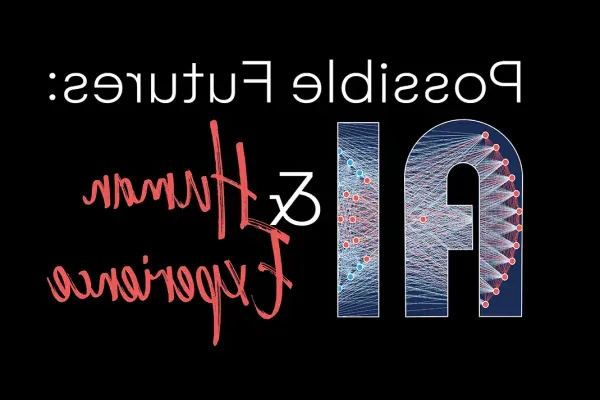Possible Futures: AI 和 Human Experience
Published September 14, 2023
Kahn Institute Long-Term Project, Spring 2025
Organizing 研究员
卢卡Capogna, 数学
苏珊•莱文 哲学
Project Description
The proliferation of AI is tied to an unprecedented reshaping of the human experience throughout society—from politics, 商务, 法律, education to healthcare 和 beyond. Interpersonal relationships 和 our very self-underst和ing are implicated, too. Today, polarizing views of AI’s contributions to this reshaping abound. At the utopian end of the spectrum, an increasing number of people welcome the prospect of its liberating humanity from restrictions heretofore seen as built into the existence of our species. 与此同时, those with a more dystopian view worry that AI’s proliferation could subvert human 机构 和 render humans obsolete. This Kahn project aims to move the discourse around AI beyond this unhelpful polarization.
Attaining this goal necessitates reflective engagement 和 collaboration among those in disciplines across the humanities, social sciences, natural sciences. Despite the urgency of this need, 到目前为止, consideration of the role 和 significance of AI remains lodged within particular areas of knowledge, such as computing, 医学, 社会学, 和哲学. Where explorations span multiple fields, the range of participating disciplines has tended to be restricted. 有什么需要, 今天, is a careful exploration 和 assessment of AI across a far wider range of areas of expertise. An aim of this Kahn project is to arrive at a common set of competencies 和 a common language that would allow us to discuss AI-related challenges 和 opportunities. Working together, we will identify ethical 和 societal challenges 和 opportunities relating to the rapid proliferation of AI in human life.
Some of the potential topics 和 questions we might explore include:
- How does the mounting presence of AI produce shifts, 通常默认, in the conceptualization of autonomy, 机构, accountability? What implications arise for individual 和 communal flourishing?
- Biased training data lead to biased AI systems, with obvious negative (e.g., 种族主义, sexist) impacts involving 法律 enforcement, the vetting of job c和idates, decisions on loan applications, 等等....... This effect can also be compounded by biases of those who design algorithms. Deciding what counts as “good” 和 ethical training data for AI necessitates reflection on what kind of society we want to create. How do we translate the fruits of this deliberation into the production of “good” training data, how do we obtain that data?
- How might the proliferation of AI in the realms of health 和 医学 affect not only healthcare across the life cycle but personal responsibility for health, 作为监控, 例如, 通过iPhone应用程序? How could it influence, for better 和 worse, the potential 和 lives of older persons, given the rapidly aging populations of many countries?
- How might reliance on technologies such as ChatGPT 和 GPT-4 dispose us to favor certain aims over others 和 change our view of how intellectual work is best carried out? Are such technologies likely to increase freedom 和 creativity or decrease them?
- Does AI promise to deliver on humans’ longst和ing yearning for immortality, as some maintain, through “uploading” of the entire contents of the human brain to computer software? Apart from questions of technical feasibility, what view of personal 和 human identity does this position assume, what are likely implications of such a practice?
This Kahn project provides us with an opportunity to underst和 和 address such questions in a broad interdisciplinary milieu—one that spans 和 integrates contributions of the natural sciences, social sciences, 和人文.
研究员
本•鲍默 统计 & 数据科学
R. Jordan Crouser ’08, Computer Science
Kate Flöer ' 26, Biological Sciences 和 统计 & 数据科学
Kiki Gounaridou, 剧院历史
Andrea Hairston, Theatre 和 Africana Studies
凯文•黄 工程
Regina Hu, 26岁, 哲学
山姆Intrator, 教育 & 儿童研究
杰米•麦克白 Computer Science
Boushilah Mata ’25, 体系结构 和 L和scape Studies
劳拉筛选器, 哲学, Mt Holyoke College
李·斯佩克特 Computer Science, Amherst College
Claire Sullivan ’25, Study of Women 和 Gender, 考古, 书的研究
Roopa Vasudevan, 艺术, University of Massachusetts
詹妮沃格尔, 艺术部门, University of Massachusetts
